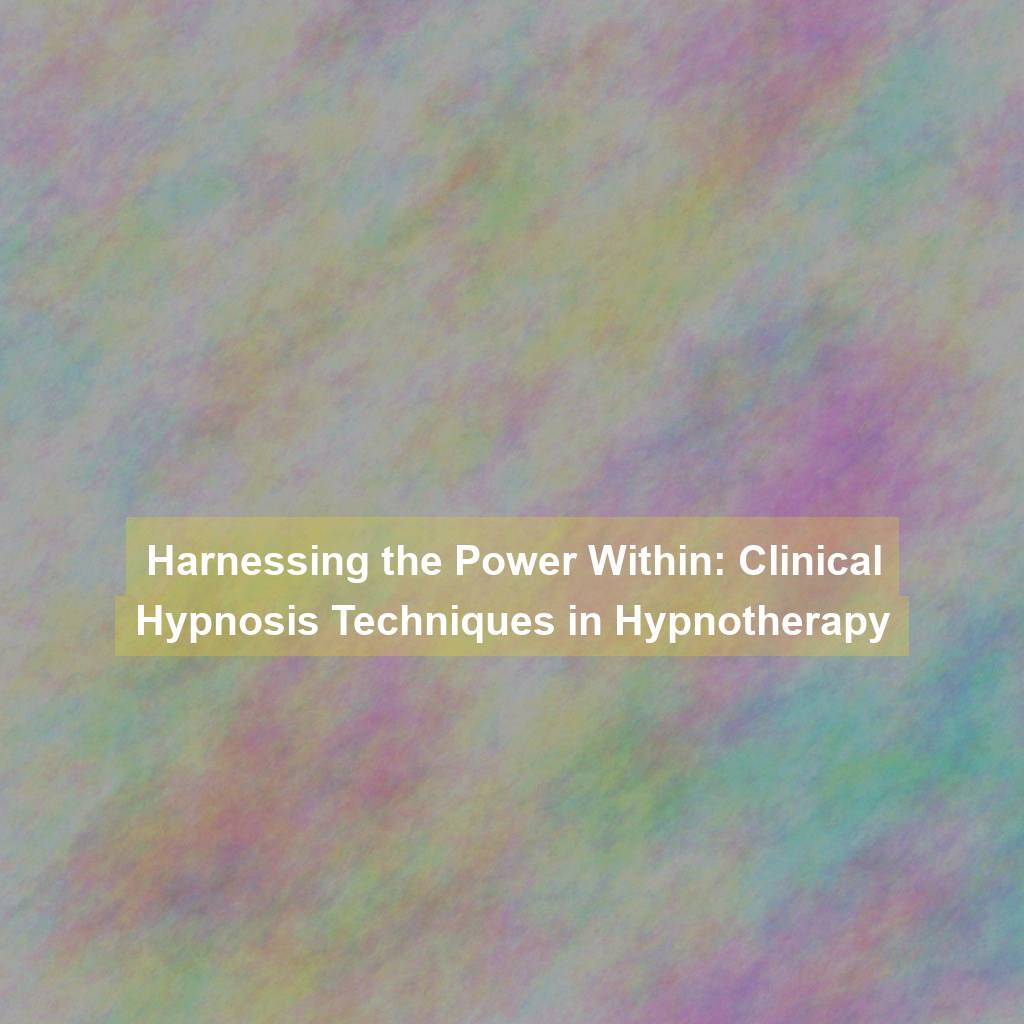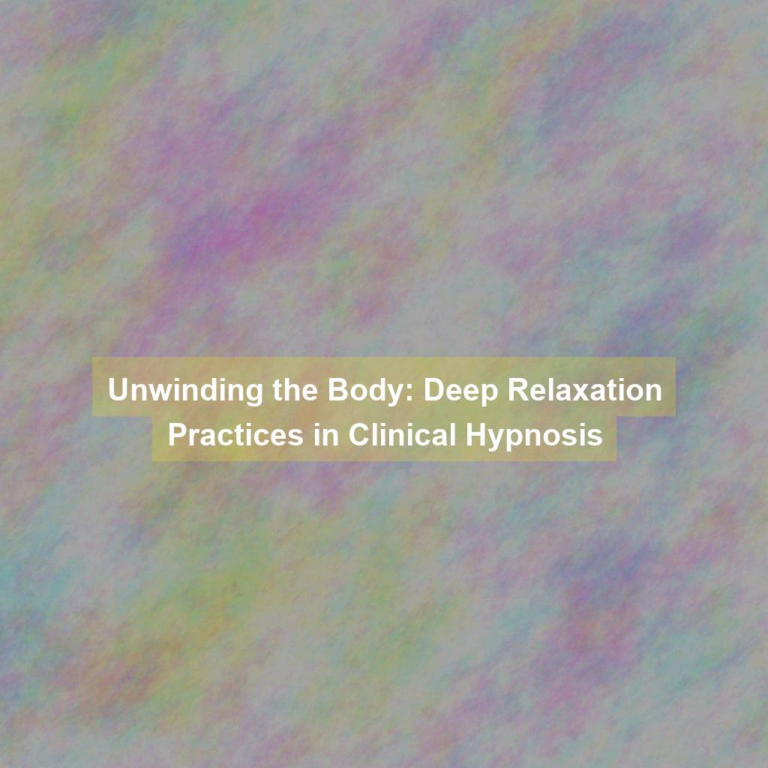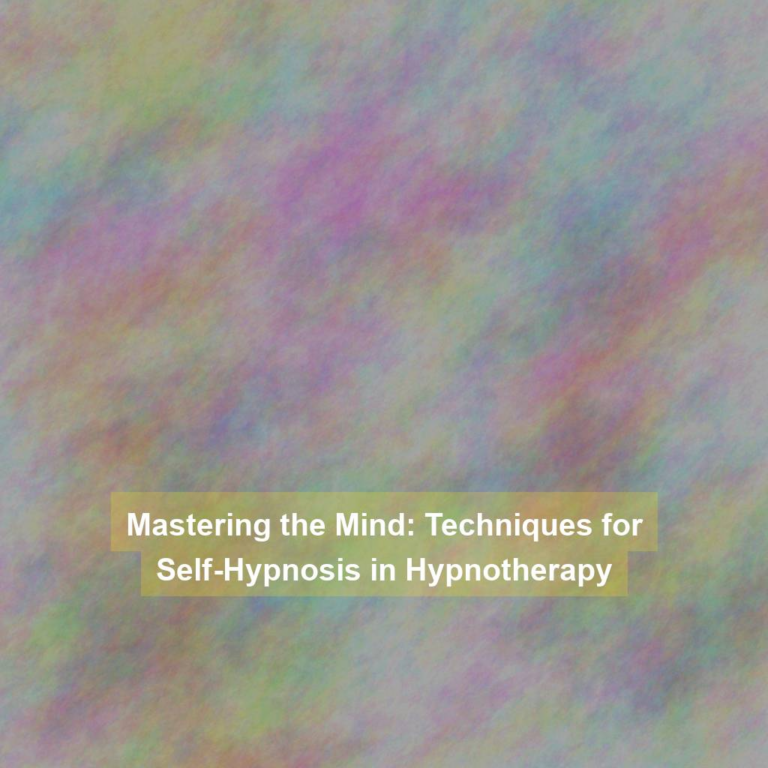Imagine a client who has struggled with chronic pain for years, trying various treatments with limited success. Now, picture this client experiencing significant relief after just a few sessions of hypnotherapy. How is this possible?
The answer lies in the power of the mind and the techniques used in clinical hypnosis. As you explore the potential of hypnotherapy, you’ll uncover how these methods can tap into the subconscious and effect positive change.
Discovering the intricacies of clinical hypnosis and its applications may challenge your preconceptions and open up new possibilities for personal and professional growth.
Understanding Clinical Hypnosis
To understand clinical hypnosis, it’s important to recognize its effectiveness in helping you achieve a deep state of relaxation and focused attention. Through this therapeutic technique, the hypnotist guides you into a state of heightened suggestibility, where your subconscious mind becomes more open to positive suggestions and imagery. This heightened state of awareness allows you to tap into your inner resources and address various issues, such as managing pain, reducing anxiety, or breaking unwanted habits.
During a hypnotherapy session, you may experience a profound sense of calmness and relaxation as your body and mind enter a trance-like state. Contrary to common misconceptions, clinical hypnosis isn’t a form of sleep; instead, it’s a state of deep focus and receptivity. In this state, your mind becomes more responsive to therapeutic suggestions, enabling you to explore and address underlying psychological factors contributing to your challenges.
Clinical hypnosis can empower you to overcome limiting beliefs, enhance self-control, and foster positive behavioral changes. It can be a valuable tool in promoting overall well-being and personal growth, harnessing the power of your subconscious mind to facilitate positive transformation.
Applications of Hypnotherapy
You can apply hypnotherapy techniques to address a wide range of issues, from managing chronic pain to overcoming phobias and improving mental well-being. Hypnotherapy has been found to be effective in alleviating chronic pain by helping you manage the perception of pain and promoting relaxation. It can also aid in overcoming phobias by accessing the subconscious mind and reprogramming negative thought patterns and responses. Additionally, hypnotherapy can be beneficial for improving mental well-being by reducing stress and anxiety, enhancing self-esteem and confidence, and promoting a positive mindset.
Furthermore, hypnotherapy can be used to support weight management by addressing emotional eating patterns and promoting healthier habits. It can also assist in breaking unwanted habits such as smoking or nail-biting by targeting the underlying triggers at the subconscious level. Additionally, hypnotherapy can be beneficial for improving sleep quality by promoting relaxation and addressing underlying issues contributing to insomnia. Moreover, it can be applied to enhance performance in various areas such as sports, academics, and public speaking by boosting confidence and focus.
Techniques for Inducing Trance
One effective technique for inducing trance in hypnotherapy is utilizing guided visualization to facilitate relaxation and access the subconscious mind. By guiding you through a series of calming and peaceful mental images, the hypnotherapist can help you enter a state of deep relaxation, allowing your conscious mind to step aside and your subconscious to become more accessible. This technique often involves describing serene and tranquil scenes, such as a beach or a peaceful garden, in vivid detail, encouraging you to immerse yourself in the experience.
Another technique commonly used to induce trance is progressive muscle relaxation. In this method, the hypnotherapist guides you through a process of systematically tensing and then relaxing different muscle groups in your body. This process helps release physical tension and promotes a deep sense of relaxation, paving the way for trance induction.
Additionally, rhythmic breathing exercises can be employed to induce trance. By focusing on deep, slow breathing, you can enter a state of relaxation and heightened receptivity, making it easier to access your subconscious mind during hypnotherapy sessions. These techniques are designed to help you achieve a state of heightened focus and receptivity, allowing the hypnotherapist to guide you toward your therapeutic goals.
Enhancing Personal Growth
Enhancing personal growth can be achieved through the application of tailored hypnotherapy techniques and targeted subconscious exploration. By accessing the subconscious mind through hypnosis, you can uncover and address underlying beliefs, emotions, and behaviors that may be hindering your personal growth. Through guided hypnotherapy sessions, you can work on building self-confidence, overcoming self-limiting beliefs, and developing a more positive mindset. Hypnotherapy can also help you tap into your inner resources, strengths, and resilience, empowering you to navigate life’s challenges with greater ease.
Furthermore, hypnotherapy can assist you in gaining a deeper understanding of yourself and your motivations, helping you to align your actions with your values and goals. This self-awareness and alignment can foster personal growth and development, enabling you to make positive changes in various areas of your life. As you continue to engage in hypnotherapy, you can cultivate a greater sense of self-empowerment, self-acceptance, and personal fulfillment. Ultimately, hypnotherapy offers a powerful tool for enhancing personal growth and achieving your full potential.
Ethical Considerations in Hypnotherapy
Ethical considerations play a crucial role in the practice of hypnotherapy, guiding therapists in maintaining professional standards and ensuring the well-being of their clients. As a hypnotherapist, it’s essential to prioritize the autonomy and dignity of your clients. Informed consent is paramount, ensuring that clients have a clear understanding of the hypnotherapy process, its potential outcomes, and any associated risks. Moreover, it’s imperative to respect the client’s right to refuse or terminate hypnotherapy at any time.
Confidentiality is another fundamental ethical consideration. As a hypnotherapist, you must uphold strict confidentiality regarding your clients’ personal information and the content of their sessions. It’s crucial to establish clear boundaries and communicate the limits of confidentiality to your clients from the outset.
Furthermore, maintaining competence and staying within the scope of practice is essential. Continuous professional development and adherence to ethical guidelines are necessary to ensure that you’re providing the best possible care for your clients. Additionally, it’s crucial to avoid exploiting the trust and vulnerability of clients for personal gain, maintaining a focus on their well-being at all times.
Conclusion
So, if you’re looking to tap into your inner strength and make positive changes in your life, clinical hypnosis and hypnotherapy may be the tools for you.
With the right techniques for inducing trance and a focus on personal growth, you can harness the power within.
Just remember to always consider ethical considerations in hypnotherapy to ensure the best outcomes for yourself and others.







